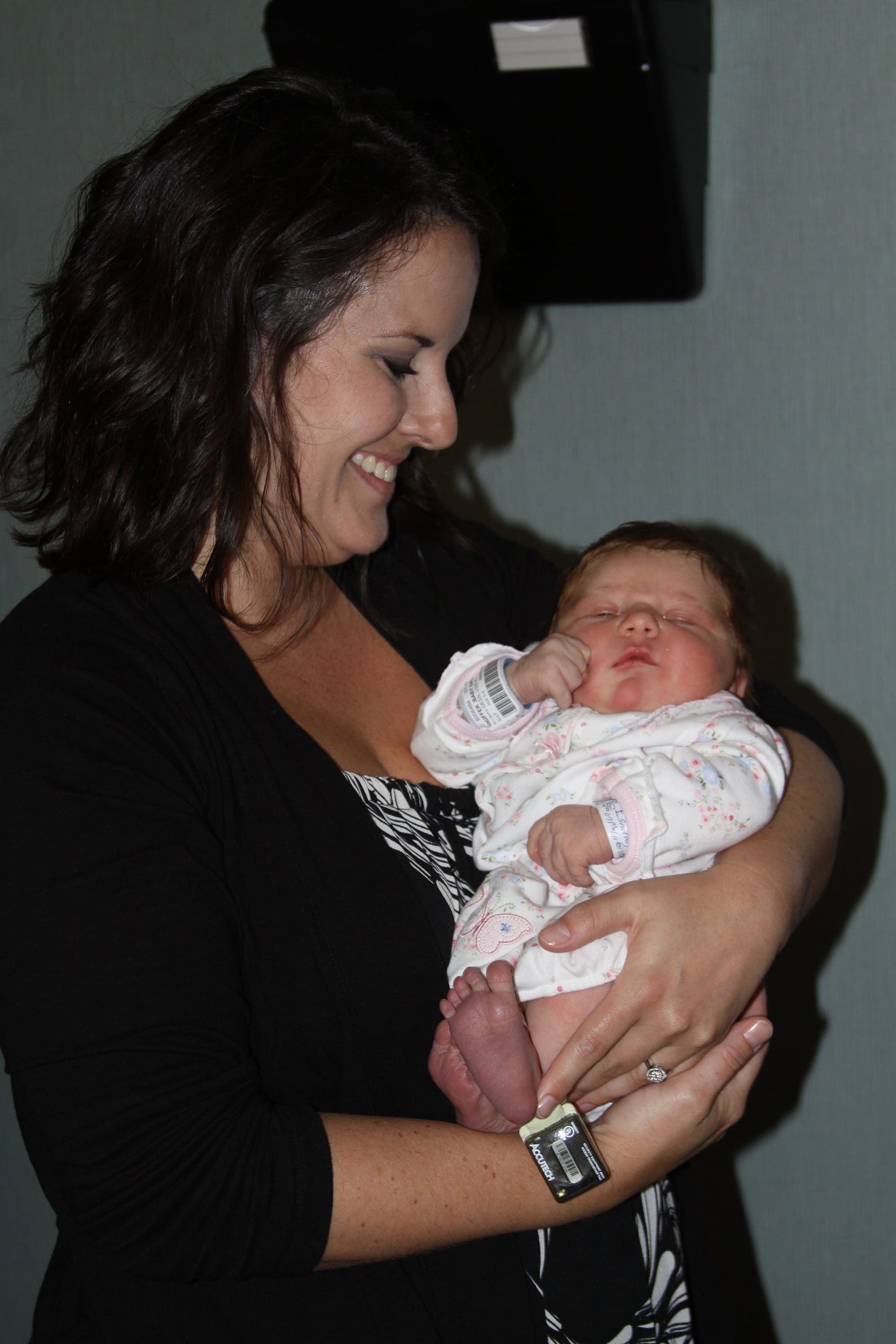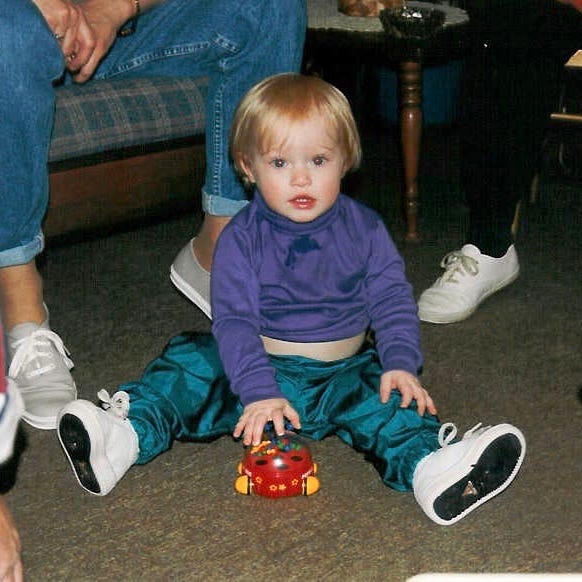Thank you for showing up each and every week to read Release and Gather, and welcome to our newest subscribers: Jonah H., Jennifer P., Lori R., and Ann R. However you stumbled across this space in cyberland, I’m glad you’re here!
At the time of her death, my great-aunt, Thelma, lived in rural Mississippi in the house (a bit modified through the years, of course) in which she was raised on land that has passed from ancestor to ancestor since the Ashley family arrived there around 1795. Aunt Thelma returned to the “old home place” after spending most of her adult life in a metropolitan area where she worked as an office professional. Not only did she move away from her small community and dedicate herself to her career, she also never married or had children. Her life was a great departure from the expectation of most women in her time and place.
As a child, I would walk the short distance from my grandparents’ house through the woods and around my grandfather’s gardens to visit Aunt Thelma. I could always count on a cold “Coca-coler,” puzzles or some sort of board game, a jar full of marbles, and an apple or an orange as a parting gift. The children and grandchildren of her four siblings were precious to her, and she was like another grandmother to me.
As life seems to go, we didn’t have much time for her as we grew into teenagers and young adults, but she always had time for us. She was a constant, reliable presence for her family as she cared for each of her siblings in their illnesses and deaths: Earl, cancer; Mae, cancer; Pete, cancer; Gurvis, cancer; and Ginny, dementia. I suppose with those odds, it’s a wonder she made it through her 85th year.
In late 2010, I read Cutting for Stone, an epic novel by Abraham Verghese that journeys from India to Ethiopia to the United States and weaves a story of family, tragedy, caregiving, regret, and forgiveness. Absorbed in the tale, I came across the word ayah.
The little boy’s ayah, Sebestie, had nothing to do other than join in the play…
This word, pronounced “ah-yuh”, reminded me of the pet name another great-niece called Aunt Thelma. I never knew how to spell it, but it sounded very similar to ayah, except it came out more like “i-yi” with a long “i” sound coming from the child with a Southern drawl.
The word intrigued me. When I looked up the meaning, I found that it was an Indian word meaning “nursemaid” and also a derivative of the Latin and Portuguese words for grandmother. I didn’t believe for one second that this word ayah had any role in the nickname given to Aunt Thelma, but I thought how fitting that she, who had become the matriarch of her family even though she birthed no children, would be called by a such a similar name. She mothered and cared for so many.
Soon after I learned of the word ayah, my 20-year-old stepdaughter, Chelsea, came to live with us. Mike and I had married the year before, and our house was already filled with my boys, 12 and 9 years old, and my other stepdaughter, 14. It may help to read the full story of how that happened here:
In July 2011, Chelsea gave birth to an auburn-haired beauty and named her Chloe. Not only did I have the privilege of witnessing her birth, but I also became a grandmother. Many people asked me what our grandparent names would be—Grammy? Maw Maw? Mimi? All of those seemed strange to me. I was, after all, only 35(!) and had no biological link to this baby.
During that season, just after I’d been acquainted with the word ayah, I found myself mothering and caring for so many, and it helped me understand my Aunt Thelma just a bit more and how one can love so well those for whom we may not have a biological claim. Oh, how Chloe held my heart from her first breath! I knew her mama would grow her and love her well, but I also understood that I would be privileged to have a unique role in her life as well.
So I became Ayah. It seemed fitting, and I prayed I could be everything my Aunt Thelma had been to so many. I was thankful I was able to tell her the name I had chosen and the meaning behind it. She died just eight months after Chloe was born.
Chloe is the first of four precious grandchildren who call me Ayah, and a couple of weeks ago I wrote about our road trip with her to Cincinnati. While we were on that trip, despite my repeated instructions over and over and over to refrain from going into labor while I was hundreds of miles away, my niece gave birth three weeks early (on my dad’s birthday, no less!) to my first grand-nephew, Wesley.1
Hope was my first baby. At 21 years old, I was quite a self-absorbed college student, but on the night she was born, I drove two hours down remote highways late at night to meet my first niece on the day she was born. Granted, I only got to look at her through the hazy glass of the nursery window, but she was so fresh and tiny and perfect. She was my introduction to something more important than myself.
Through the years, Hope went through some life events that no child should have to endure—estrangement from her biological mother because of drugs, emotional abuse by her stepmother, and the murder of her biological mother, who had been on a better path.
But she rose from it, taking every opportunity to learn and grow. She graduated college a year early and has continued her education while working full-time. She met a wonderful guy who loves her well, and when she told me she was expecting, I prayed prayer upon prayer that God would let this child heal her in ways she didn’t know she needed.
When we returned from our trip, we dropped Chloe off and headed straight for the hospital. I’d been through this a few times, so I should be a pro, right? But I was completely giddy with anticipation on the drive there.
Then we arrived. I was hugging my first baby, who isn’t a baby anymore but a new mama, and then I was gazing upon baby Wesley with all his tiny yawns and poopy diapers.
One day, dear boy, I will give you puzzles and board games and apples and oranges and a jar full of marbles. We will hike through creeks and make trails in the woods; we’ll roast marshmallows over bonfires and climb trees (well, you, not me). I’ll read books to you, and you’ll paint grand pictures for me. I will shower love on you whenever I can so you will grow tall and strong and good.
And you will call me Ayah.
YOUR TURN
Who has been an “Aunt Thelma” in your life?
How did you come up with your grandparent name?
If you do not have biological children, have you found ways to pass wisdom and love to others’ children or to care for other adults?
For those of you who have been following along for a while, this is the daughter of my brother who recently had the stem cell transplant—so there is lots of celebrating going on here!











Very sweet! I love how you weave through generations past and future.
Oh I LOVE these baby pictures Holly. Thank you for sharing this beautiful story.